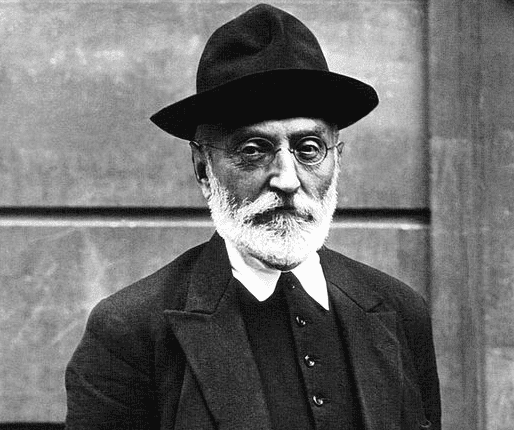Discover some phrases by Miguel de Unamuno, a Spanish writer and philosopher who belonged to the 98th generation. In his work you can see how he approached all the existing literary genres: romance, essay, poetry and theater.
However, the most characteristic thing about this author is that there was a predominant theme in each of his works: existentialism, that is why today we have compiled some phrases by Miguel de Unamuno that reflect many of the philosophical concerns he had.
- However.
- Before addressing them.
- It should be mentioned that the existentialism present in Unamuno is the result of the experiences of the 98th generation.
The political, social, economic and moral crisis led writers to reflect in their works the anguish that inspired them in the situation of the time. After this brief parenthesis, we will now see some of the most interesting phrases of Miguel de Unamuno.
“Love makes us believe in God, whom we hope for, and whom we expect for the future life; Does love make us believe what creates our dream of hope?
References to God are recurring in Unamuno’s work. As the article The Desire of God in the work of Miguel de Unamuno says, he “seeks a personal God who guarantees immortality, perseverance [?] It gives meaning to its existence. “
However, with this phrase, Unamuno brings us closer to the dichotomy in which it is located. On the one hand, this much-needed and human hope. On the other hand, the anguish that this has caused him and what he calls “dream”.
The contradiction is also reflected in the studies carried out on this writer: researchers do not yet agree whether he was atheist, agnostic or religious.
“The less you read, the more damage it causes. “
This second sentence by Miguel de Unamuno refers to one of the least practiced afitions today: reading.
Despite its importance, as indicated in the article The Importance and Impact of Reading, Writing, and Critical Thinking in Higher Education, Unamuno already knew at the time how vulnerable people who did not read became.
If a person doesn’t read regularly, they’re more likely to stop being critical to avoid believing what’s presented to them. Much of what is written can try to persuade, convince, or act for some other kind of interest.
Reading is a way to avoid being manipulated by words
“True science learns, above all, to doubt and to be ignorant. “
This third of Miguel de Unamuno’s sentences have a close relationship with the previous one. Just as lack of reading can make everything that falls into our hands right or true, science teaches something fundamental: doubt.
Doubt encourages the search for answers, which leads us to greater knowledge, is very important for science. Feeling ignorant is the best way to keep making discoveries. In fact, perhaps the phrase of a well-known philosopher, Socrates, comes to mind: “All I know is that I know nothing. “
“One of the advantages of not being happy is that you can wish for happiness. “
Among the various reflections that roamed Unamuno’s mind was the idea of being happy, it is an investigation with which we all feel identified, as if it were an unattainable goal, because it seems that the time never comes to be completely happy.
The fourth sentence of Miguel de Unamuno refers to the only advantage of not being happy, and it is this desire, perhaps hope (as we saw in the first of his sentences), that remains only in this, a desire that never seems to materialize.
“It’s very sad not to feel loved, but it’s very sad not to be able to love. “
This last sentence of Miguel de Unamuno allows us to reflect on love, many people seek to feel loved when they are not in love.
Feeling loved is research that is solved when we cultivate our self-esteem. A choice that can lead us to feel the desired happiness.
These are some of Miguel de Unamuno’s phrases, but there are many others. Religion, love, joy and doubt are topics that this writer addresses in most of his works.
They are phrases that invite reflection and that, far from being strange, transport us to this introspection in which unamuno frequently dived.
Miguel de Unamuno is one of the reference figures. We find a particular reflection of his time through his reflection, outlined by some of the phrases we present.
Moreover, as we have seen, the phrases transcend the temporal omnipresence of his life to project himself into history, reaching the furious topicality.

